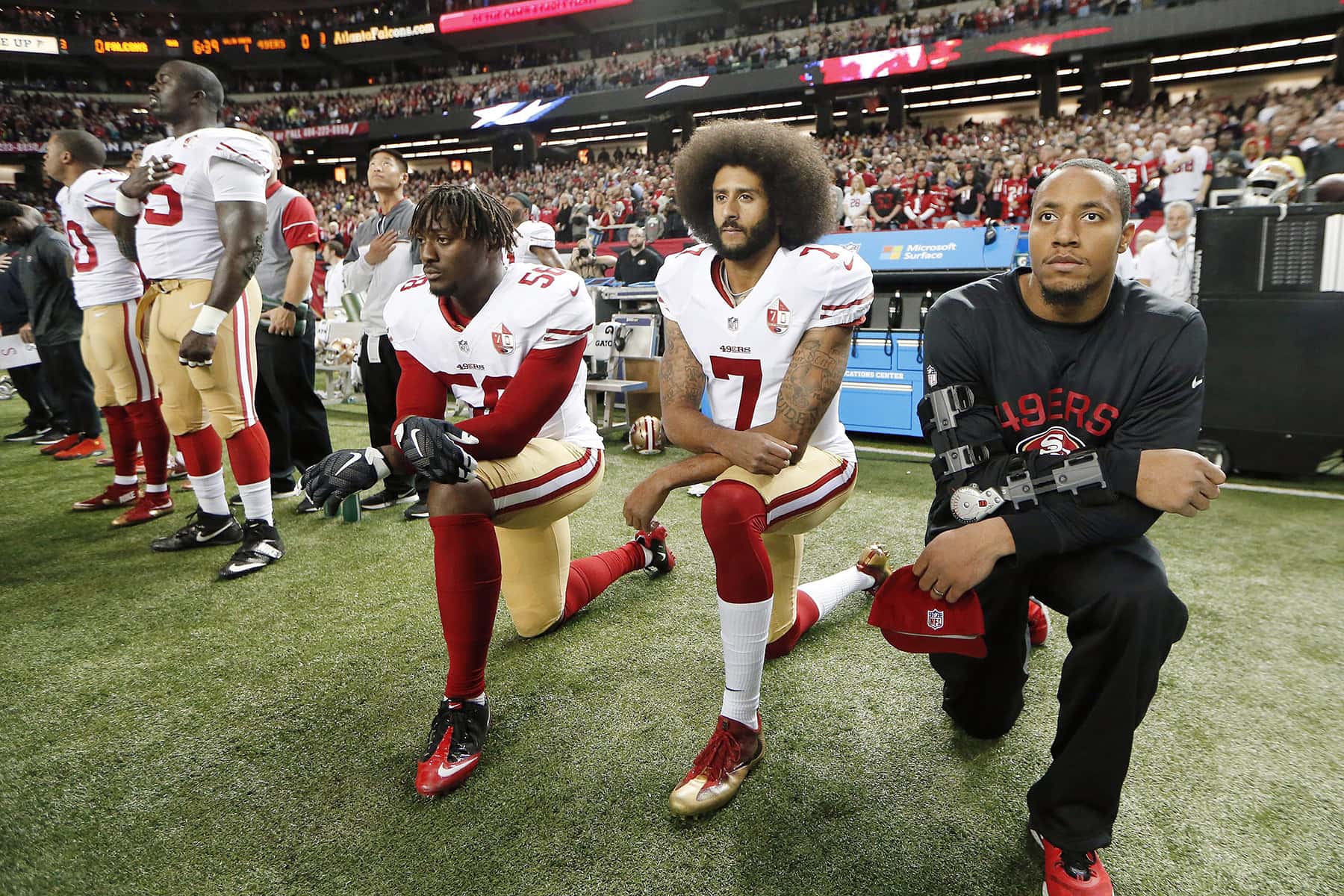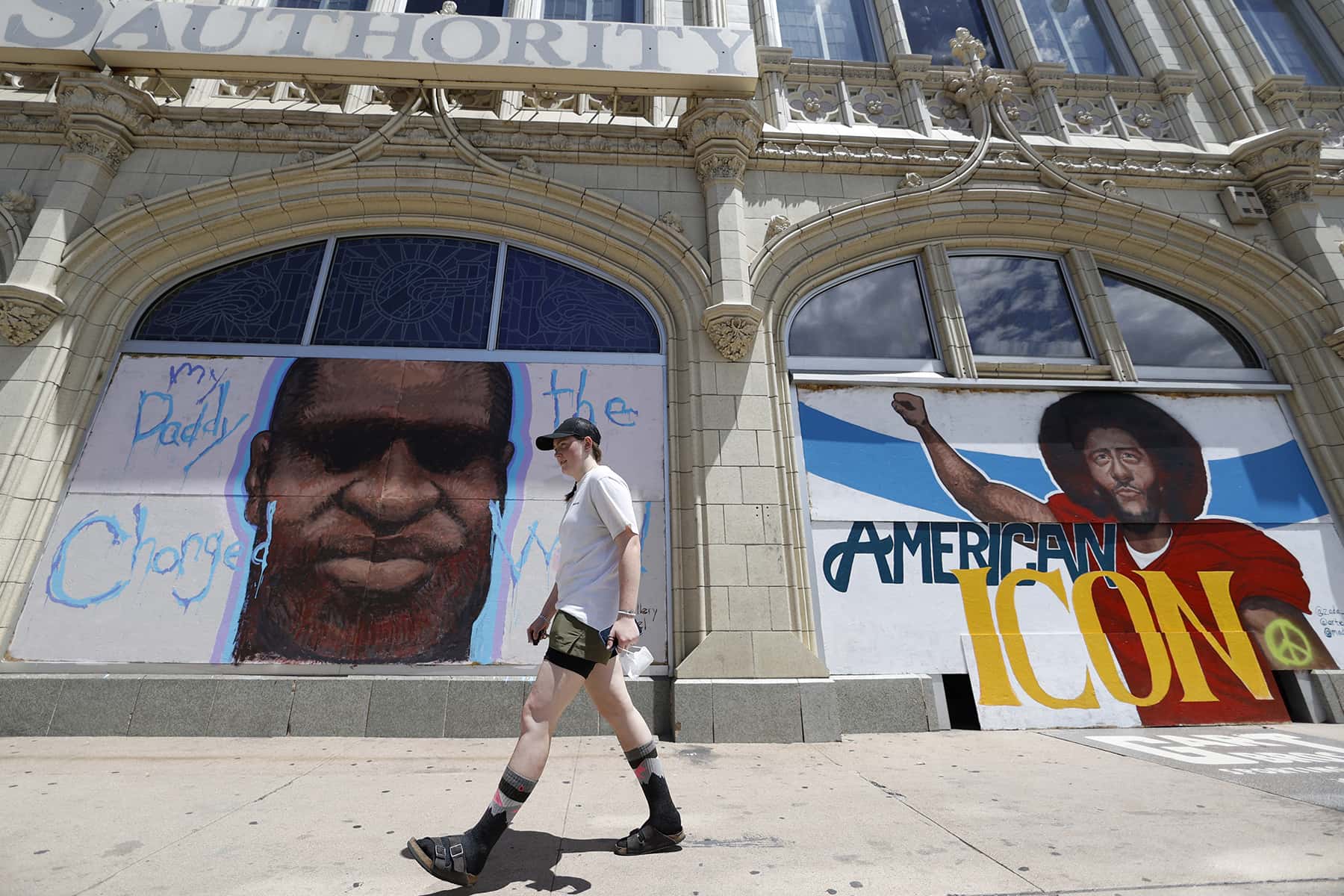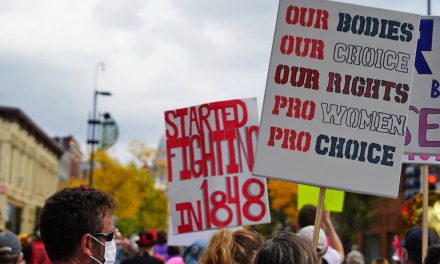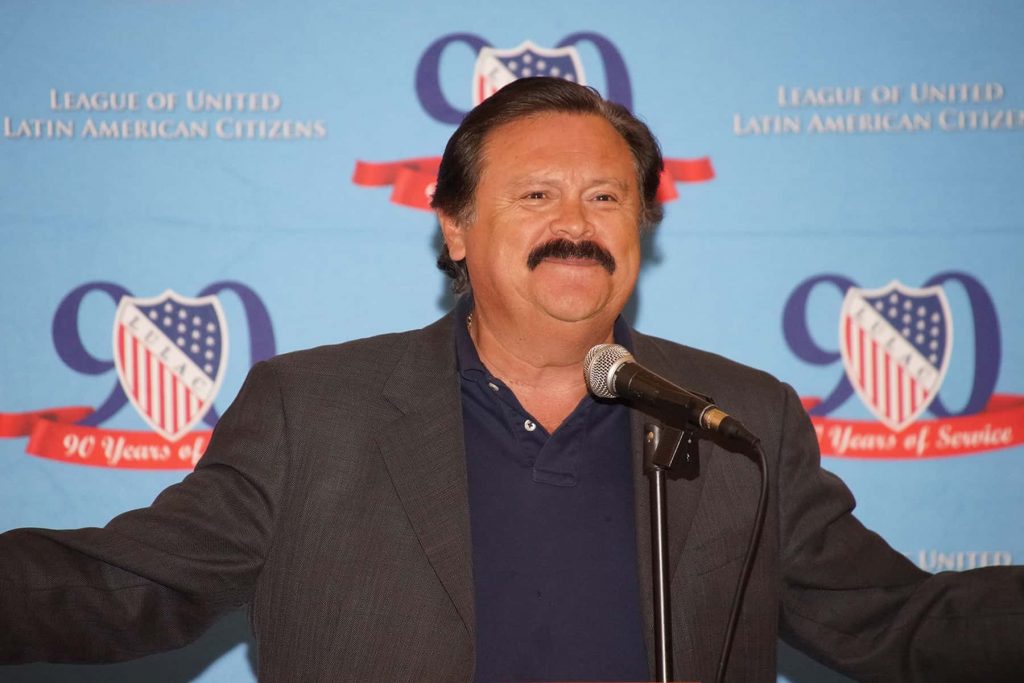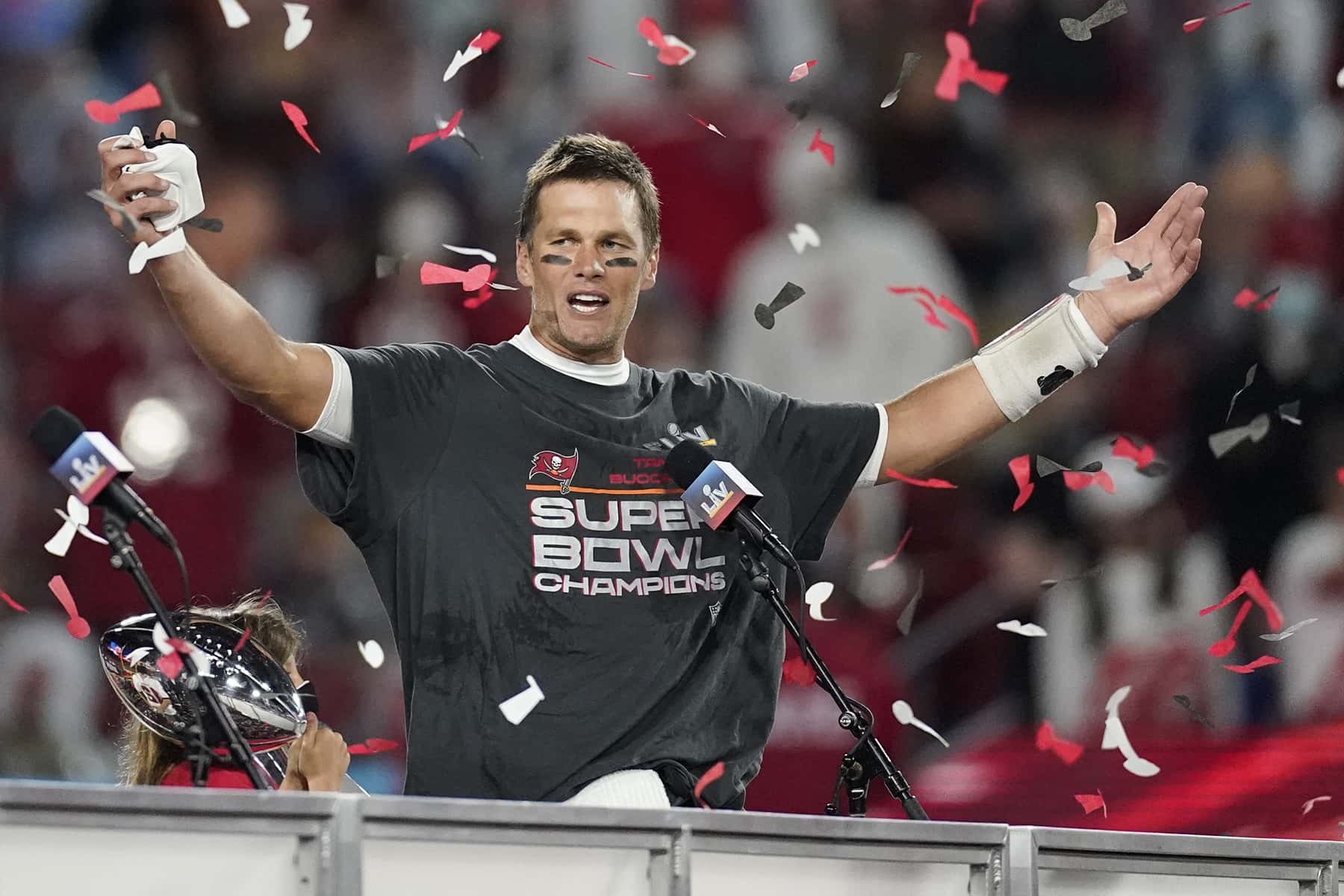
By Jonathan Finn, Professor of Communication Studies, Wilfrid Laurier University
The 2021-22 NFL season is underway and Colin Kaepernick is still out of a job. It has been more than five years since he took a knee during the national anthem and in so doing further exposed issues of systemic racism in the NFL.
I have been researching and writing about sport and media for several years and I frequently use Kaepernick’s case in my classes. To illuminate the gendered and racialized nature of that case and of the NFL, I ask a hypothetical question: what if Tom Brady took a knee?
Kaepernick’s story is now quite familiar. In 2016 he began kneeling during the national anthem to protest police brutality and racial injustice in the United States. In what sports reporter Dave Zirin calls “the Kaepernick Effect,” this gesture spurred a movement across different sports.
For the NFL, Kaepernick’s gesture created a public relations nightmare. Following the death of George Floyd and swell of the Black Lives Matter movement, the NFL was forced to make public displays in support of inclusivity, which included “allowing” players to post social justice messages such as “End Racism” or “Stop Hate” on their helmets.
Whether or not the Kaepernick Effect has lead to any meaningful change in the NFL is up for debate, though the recent controversy surrounding Jon Gruden would suggest not. But for all its apparent nods to inclusivity and ending racism, Kaepernick has yet to be re-signed to an NFL team.
A vitriolic response to protest
Kaepernick was clear in his communications with media that his protest was about police brutality and racial discrimination — he was simply calling attention to well-documented facts. Yet the response to his kneeling quickly turned ugly with fans, team owners, media personnel and then-President Donald Trump calling him un-American and unpatriotic. Several went so far as to call him a traitor. The disconnect between what Kaepernick meant and how his detractors interpreted his protest is remarkable.
The backlash to Kaepernick’s protest is most obviously tied to the fact he is Black. But to understand the peculiar level of vitriol in response to the protest it’s important to understand the NFL and its underlying myths. In a highly influential 1975 essay, communications scholar Michael Real described the sport as “American ideology collectively celebrated.”
He identified football as an aggressive, militaristic, capitalistic enterprise that is both gendered and racialized. He concluded, “if one wanted to create from scratch a sport that reflected the sexual, racial and organizational priorities of American social structure, it is doubtful one could improve on football.”
Not much has changed since 1975.
Borrowing from sociology and anthropology, Real described the NFL as a mythic structure, one that was created from and helped to sustain the dominant social order in the U.S. Myths function by appearing to be natural or normal. When faced with a challenge to a dominant myth, communities and societies often willfully ignore concrete evidence in favor of sustaining belief in the existing social order. That’s what happened with Kaepernick.
Challenging the myth of American exceptionalism
Kaepernick’s protest called attention to the myth of American exceptionalism in a space that is built upon and demands allegiance to that myth. His protest called attention to police brutality and racial injustice but also challenged the myth that the U.S. is a free and fair country where anyone can succeed through hard work and determination. In refusing to “shut up and play,” he called attention to the deep-seated racial tension that is baked into the DNA of the NFL and the U.S.
In response to this challenge, fans, players, owners and others had to either acknowledge the structural problems of their game and nation or find another avenue to keep the myth intact.
What if Tom Brady took a knee?
What if it was Brady and not Kaepernick that began the movement in 2016? The absurdity of the question is also what makes it so revealing. It would be impossible for Tom Brady to take a knee — it would run counter to every other facet of his public persona. Where Kaepernick — as someone who is Black — was described as a traitor disrespecting his flag and country, Brady is quintessentially all-American: white, male, heterosexual, fit, attractive, married to a supermodel, family-man, tremendously wealthy, law-abiding, apolitical (or at least uncritical), multiple championship winner and future Hall-of-Famer. In short, he is a winner.
Brady taking a knee is counter to both the man and the league. Nonetheless, had he done so, he would have been received much more favorably — it would have been relatively easy for football’s mythic structure to absorb Brady taking a knee and remain intact.
The impact of the protest on the myth would have been outweighed by the magnitude of Brady’s American-ness. It would have been too costly (literally and figuratively) to purge Brady from the league as has been done with Kaepernick. And to do so would have acknowledged the racial and gendered hierarchy in America’s social structure — the exact forces central to Brady’s and the NFL’s success.
Аshlеy Lаndіs, Jоhn Bаzеmоrе, and Dаvіd Zаlubоwskі
Originally published on The Conversation as What if Tom Brady took a knee instead of Colin Kaepernick?
Support evidence-based journalism with a tax-deductible donation today, make a contribution to The Conversation.

